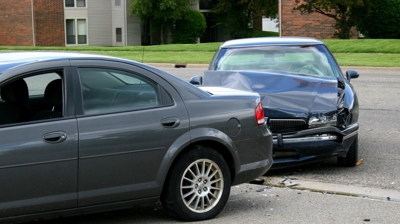
Florida Rideshare Accident Attorneys
Uber & Lyft Accident Claims
It is almost impossible to deny that ridesharing companies like Uber and Lyft have changed the way Americans get around. These companies make getting from one place to another more convenient and at a competitive price point.
Every day, millions of people use Uber or Lyft to get to their destination and, thankfully, most of them get there safely and without a problem. But what happens when an Uber or Lyft driver causes an accident, and you are either a passenger in the ride sharing vehicle or you are in a vehicle they hit?
Uber and Lyft are both very much aware that accidents happen. Both companies carry huge insurance policies, in order to pay out accident claims. Over the years, passengers, other motorists, pedestrians, bicyclists and many others have received accident settlement amounts that pay for all their medical care and other damages caused by an accident involving a negligent driver.
Contact our Florida rideshare accident lawyers by calling (727) 788-6792 today!
If Injured by a Negligent Uber or Lyft Driver, Can You Sue?
Put simply, of course you can, although getting your Uber or Lyft accident settlement won’t be as easy as simply reporting the accident and receiving a check. Like most large companies, they don’t want to pay out and their insurance carriers also will try not to pay what you may deserve.
Insurers also try to protect ridesharing companies, so according to them, there are three “periods” when it comes to ridesharing:
- Period 1 is when the driver is cruising around town with the Uber or Lyft app open, but they have not yet been matched with a rider.
- Period 2 is when Lyft or Uber has matched the driver with a rider and they are en route to pick them up
- Period 3 is when the rider is in the car. Period 3 ends when the rider is dropped off at their destination.
What Will Uber & Lyft’s Insurance Cover
Uber and Lyft both carry $1 million insurance policies, but coverage levels adjust depending on the driver’s status. Collision and comprehensive insurance applies only to drivers who also carry these coverages on their policies, and drivers must usually seek recovery from their own policies before the company's policy applies. A driver’s injuries are covered only if another driver is responsible.
Below is a summary of Lyft’s typical insurance coverage for a driver:
Period 1: Liability limits are low and comprehensive and collision coverage are not offered. Lyft’s liability coverage has limits of 50/100/25 ($50,000 per person bodily injury, up to $100,000 per incident, and $25,000 for property damage). This is contingent coverage, which means the driver must make a claim on their personal policy first. If the claim is denied, Lyft’s coverage will step up to the plate.
Periods 2 and 3: Liability coverage is plentiful, with the $1 million coverage, but collision and comprehensive is only contingent. Lyft also offers comprehensive and collision to its drivers during Periods 2 and 3, but the coverage is contingent, just as it is during Period 1. Lyft also carried a $1 million uninsured/underinsured motorist policy.
Uber drivers’ liability is equally as complicated, since Uber drivers also carry their own personal insurance, which often exclude accidents that occur on the job. If the accident happens during Periods 1 or 2, the Uber driver’s personal auto insurance policy should apply, but they may try to deny coverage, in which case Uber’s insurance will take effect. Therefore, if you find yourself in an accident with an Uber driver, you may have more than one insurance adjuster attempting to deny coverage, which means more than one source for coverage.
Uber also provides its drivers with additional liability coverage of up to $50,000 for injury and $25,000 in property damage coverage, as part of their benefits. There is a catch, however, in that the Uber driver must request it, and it only applies if the driver’s personal insurance doesn’t cover all damages.
The Importance of Independent Contractor Status in Your Case
It’s important to remember that both Uber and Lyft claim their drivers are not employees. Because of this, if you are injured in an accident involving an Uber or Lyft driver, whether as a passenger of the ridesharing service or the passenger of another vehicle they hit, you should make sure you hire an attorney immediately because they and their insurance adjusters will use that “independent contractor” status to avoid paying out anything.
Ridesharing companies have too often been successful at avoiding responsibility, even in cases in which their driver was drunk or distracted at the time of the accident. Uber and Lyft also require all drivers to sign an agreement in which they promise to take on all responsibility and defend their company when someone sues them after an accident.
When you have been in an accident with an Uber or Lyft driver, many of the at-fault parties will point fingers at each other and nearly everyone will try to avoid taking responsibility. That does not mean no one receives an Uber or Lyft accident settlement. Recently, a pedestrian who was hit and killed by an Uber driver received a settlement for an undisclosed amount just 10 days after the accident. Thanks to the assist of an attorney, that victim received a settlement less than two weeks after the accident.
What to Do When You’re in an Accident With an Uber or Lyft Driver
Following these steps after a rideshare accident will help protect your rights and give you a better chance to recover damages if you need to pursue a claim. Each action matters, and prompt decisions can prevent headaches down the road.
- Seek immediate medical attention – After an accident, see a healthcare professional for an examination. Many injuries may take hours or days to appear. Even if you felt fine at the scene, visit a doctor or hospital to check for hidden injuries and document your condition.
- Never accept a quick settlement – Insurers often offer fast payouts to reduce their responsibility. Accepting one may block additional recovery later. Get legal advice before signing anything presented by Uber, Lyft, or any insurance company.
- Stay off social media – Do not post accident details, injuries, or updates on social networks. Insurance adjusters and defense lawyers may review your posts and use them to oppose your claim.
- Call a lawyer as soon as possible – Consult a lyft accident lawyer in Florida, uber accident lawyer Florida, or rideshare accident attorney Florida victims trust to start building your case and help guide every decision along the way.
Finding the Right Attorney is Key to Your Uber or Lyft Accident
You can try to fight a claim on your own by going through Uber or Lyft, or even the driver’s personal insurance company. However, it’s a good idea to keep in mind that everyone you will be up against will have billions of dollars, an army of lawyers and plenty of incentive to pay you as little as possible. Dealing with insurance companies can be brutal and feel demoralizing, and feel like there is no point to it. Getting an experienced Uber or Lyft accident attorney, like those at Kemp Law Law Group, to fight for your rights under the law will bring you greater peace of mind than trying to do it all on your own. We know how to deal with insurance companies in a way that brings the best possible accident settlement for your case.
Don’t settle for the first lawyer you find. You need someone with the ability to take on billion-dollar corporations like Uber, Lyft and their billion-dollar insurance carriers and get the highest possible settlement. Kemp Law Law Group has the experience you need. Victims of these accidents need a knowledgeable and experienced personal injury attorney on their side to make them whole again. Contact Kemp Law Law Group today for a free consultation.
Common Causes & Types of Rideshare Accidents in Florida
Rideshare accidents in Florida arise from many factors, including distracted driving, crowded city streets, highway congestion, and unpredictable weather. Navigation apps, texting, and passenger conversations can divert a driver’s attention. The sheer volume of rideshare vehicles in tourist-heavy areas like Orlando and Miami Beach adds complexity to already challenging driving conditions. Lyft accident lawyer Florida clients often see cases where drivers speed, make quick stops, or take unfamiliar detours, especially when trying to maximize fares late at night.
Accidents involving Uber or Lyft may occur when a driver rear-ends another car, is struck while picking up or dropping off a passenger, or collides with pedestrians and cyclists near crosswalks. Some accidents happen as passengers get into or exit the vehicle. Each of these scenarios creates unique insurance and liability questions under Florida law. Consulting a rideshare accident lawyer in Florida helps clarify your options after these incidents and readies your claim for local standards and time limits.
Florida Rideshare Laws & Regulations That Affect Your Case
Florida's rules impact rideshare accident claims more than in most states. By law, Uber, Lyft, and other transportation network companies must run background checks, offer increased insurance while a ride is underway, and preserve trip records digitally. Statute § 627.748 requires at least $1 million in liability coverage during active rides, with lower required coverage when the app is on but there is no rider.
Florida’s no-fault insurance system means that most drivers and passengers submit claims through their own PIP insurance, regardless of fault, before seeking damages from another driver or policy. If your injuries are severe or costs run high, you may pursue recovery from the responsible driver or the rideshare company’s insurance. Every step can involve unique forms and legal deadlines, so having a rideshare accident lawyer in Florida helps you avoid costly mistakes and move your case forward.
FAQs
Is There a Difference Between Rideshare Accidents and Other Car Accidents in Florida?
Yes. Rideshare accidents usually involve more complex insurance coverage because Uber and Lyft provide additional policies beyond the driver’s personal auto coverage. The company's insurance applies depending on whether the driver was waiting for a ride, carrying a passenger, or driving with the app off.
What Should I Do If an Uber or Lyft Driver Leaves the Scene After a Crash?
If a rideshare driver leaves the scene, notify local law enforcement and request a police report as soon as possible. Seek medical care even if you feel fine and keep all your documents. Provide details to the rideshare company, and consider contacting a rideshare accident attorney Florida clients rely on to protect your interests.
How Does Florida’s No-Fault Law Affect Rideshare Accident Claims?
Florida’s no-fault law requires you to use your PIP benefits before seeking compensation from a rideshare driver, Uber, or Lyft. If your injuries are serious or your costs exceed your PIP limit, you may pursue additional compensation from the responsible party’s insurance, which could include Uber or Lyft depending on the accident details.
Contact our Florida rideshare accident lawyers by calling (727) 788-6792 today!






